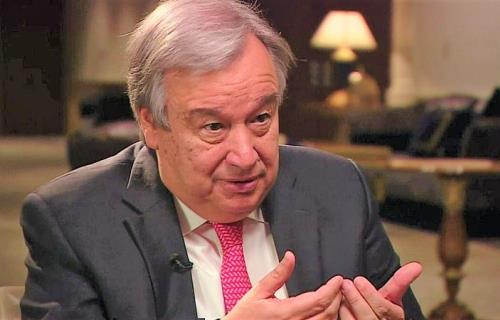UN appoints twenty eminent thinkers to shed new light on the world’s greatest challenges
- Advertisement -
Twenty prominent personalities, globally renowned for their intellectual leadership in economic and social fields, will form the second United Nations High-
Over the next two years, the Board will strengthen the United Nations thought leadership on sustainable development and reinforce its impact on policies at every level – from global to local.
- Advertisement -
Comprising a diverse group of experts from around the world, the Board will closely collaborate with UN DESA to provide guidance and focused recommendations
- Advertisement -
The first United Nations High-
Over the course of the last two years, the interventions and insights of the Board greatly expanded the understanding of UN DESA of some of the most burning economic and social issues shaping our world and inspired the United Nations to break new ground in policy research. The first Board left behind a legacy in the form of a volume of essays “Recover Better: Economic and Social Challenges and Opportunities” on ways to advance the sustainable development agenda.
Members of the Second High-level Advisory Board on Economic and Social Affairs:
Giancarlo Corsetti, Professor of Macroeconomics,University of Cambridge
Diane Coyle, Co-director of the Bennett Institute for Public Policy, University of Cambridge
Ibrahim Ahmed Elbadawi, Managing Director, Economic Research Forum, Egypt
Alex Ezeh, Dornsife Professor of Global Health, Community Health and Prevention, Drexel University and former Director of African Population and Health Research Center (APHRC)
Marcel Fratzscher, President of DIW Berlin
Anastasia J. Gage, Professor at the Department of Global Community Health and Behavioral Sciences, School of Public Health and Tropical Medicine, Tulane University
Jayati Ghosh, Professor of Economics, University of Massachusetts Amherst
- Advertisement -
Nargis Kassenova, Senior Fellow and Director of the Program on Central Asia at the Davis Center for Russian and Eurasian Studies, Harvard University, and Associate Professor at the Department of International Relations and Regional Studies of KIMEP University (Almaty, Kazakhstan)
Ricardo Froilán Lagos Escobar, Honorary Chairman of the Inter-American Dialogue; former President of Chile (2000-2006)
Mariana Mazzucato, Professor in the Economics of Innovation and Public Value at University College London (UCL), and Founder/Director of UCL’s Institute for Innovation and Public Purpose
José Antonio Ocampo, Professor at the School of International and Public Affairs, Columbia University, and Chair of the Committee for Development Policy of the United Nations Economic and Social Council (ECOSOC)
Dani Rodrik, Ford Foundation Professor of International Political Economy at Harvard’s John F. Kennedy School of Government
Jeffrey David Sachs, Director of the Center for sustainable development at Columbia University and SDG Advocate
Elisabeth Sidiropoulos, Chief Executive, the South African Institute of International Affairs (SAIIA)
Joseph Eugene Stiglitz, Professor, Columbia University
Heizo Takenaka, Professor Emeritus, Keio University, and Professor, Toyo University
Izabella Mônica Vieira Teixeira, former Minister of Environment (2010-2016), Brazil
Kori Udovicki, Head of the Center for Advanced Economic Studies (CEVES)
Ernesto Zedillo Ponce De Leon, Director of the Yale Center for the Study of Globalization; former President of Mexico(1994-2000)
Min Zhu, Chairman, National Institute of Financial Research, Tsinghua University
More information on the HLAB can be found athttps://www.un.org/en/desa/
- Advertisement -


